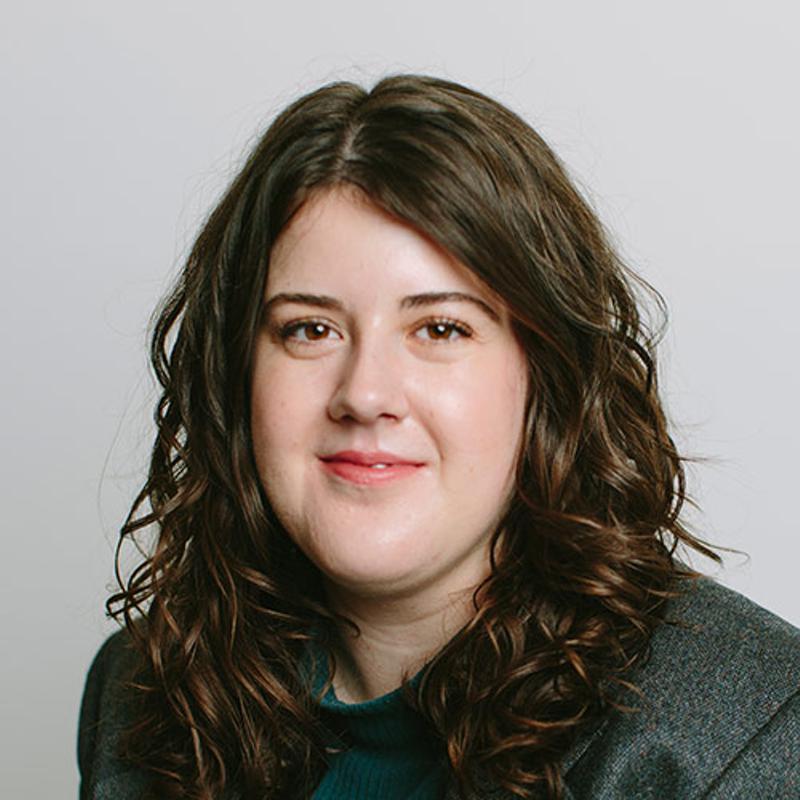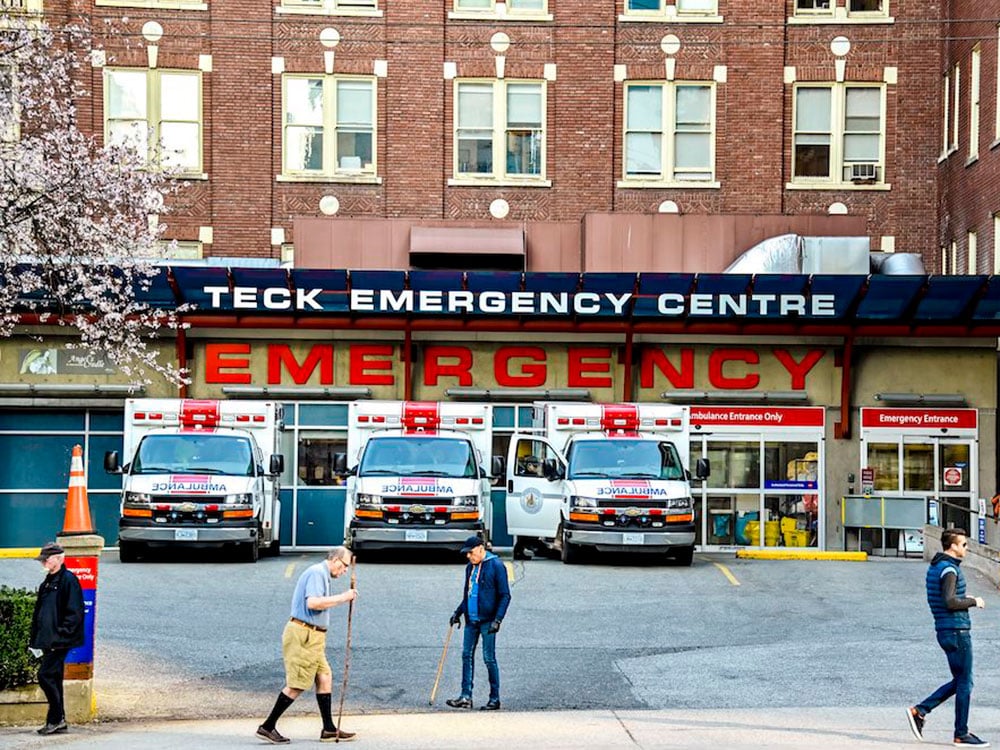The downtown Vancouver hospital at an epicentre of British Columbia’s mounting toxic drug crisis will soon have a new model to improve substance use and mental health care.
Details from the provincial government, however, remain scarce.
On Sunday, Premier David Eby vowed to integrate services for mental health, overdose response, addiction treatment and housing at St. Paul’s Hospital as part of his Safer Communities Action Plan.
“We are working with St. Paul's to create a seamless treatment stream so when people show up at the hospital in distress and with issues around addiction and mental health that they can move directly to detox and into treatment,” said Eby from Queen Elizabeth Park.
“This will be a model that we can roll out across the whole province.”
St. Paul’s, run by Providence Health, responds to a high volume of patients in mental health crises or experiencing drug poisonings in Vancouver due to its proximity to the Downtown Eastside.
It has the largest inter-department division of addiction medicine of any hospital in Canada and has become a hub for new models in caring for marginalized patients.
In 2016 St. Paul’s opened the Rapid Access Addiction Clinic that provides low-barrier outpatient services for people using substances. The hospital is also home to the Transitional Care Centre for unhoused patients moving back to community care and the Hub, which diverts patients in need of mental health and substance use care away from the emergency room.
Demand for these services has ballooned far beyond capacity in recent years. Wait times for referral to withdrawal management and detox spaces for people who want to stop using drugs start around six weeks.
Providence estimates the number of visits for mental health and substance use concerns including drug poisonings has increased 70 per cent in the six years since the RAAC opened.
The Tyee contacted the Premier’s Office for more information about how this new model will work and overcome the capacity and resource barriers plaguing St. Paul’s now.
The request was referred to the Ministry of Mental Health and Addictions, which said more information about the model will be available in the coming months as the ministry works with Providence Health and Vancouver Coastal Health.
“We know more needs to be done, particularly to streamline access and fill gaps between services, so that people can seamlessly move between detox and treatment services,” wrote a ministry spokesperson in an emailed statement.
‘Nowhere to go’
Frontline workers and advocates for drug user rights say improvements can’t come soon enough, but they need to be done in consultation with people with living experience.
Many people who need a safe place to heal and rest are discharged early due to capacity issues, unless they can prove they present an immediate danger to themselves or others, said Sarah Blyth, executive director of the Overdose Prevention Society.
“Often someone will go to St. Paul’s in an emergency mental health situation and get medicated and tossed out within 24 hours,” said Blyth, noting this trend has only increased as the toxic drug supply has driven more drug poisonings.
People leave traumatized and discouraged from accessing essential medical care for even physical ailments like infections or injuries that can turn fatal. “How do we expect people to get well or feel better if they have a huge infected leg and sleep in an alleyway?” said Blyth.
“The unintended consequences of doing nothing are what we’re seeing now.”
Gary Davison went to St. Paul’s for health care many times when he was actively using drugs, and rarely felt he got the care and support he needed.
But he remembers walking back to the Downtown Eastside from St. Paul’s one rainy winter evening without any warm clothes. The hospital had provided him a bus ticket but it was so late transit had stopped running.
“It would help a lot of people if they could say, ‘I am not feeling well,’ and there was somewhere for them to stabilize and feel better,” said Davison, who has been a frontline harm reduction worker for more than 25 years.
“Instead you’re walking to the Downtown Eastside to sit in an alley because you have nowhere to go.”
Davison is now in recovery and takes Suboxone, an opioid substitute therapy. He says timeliness of detox, treatment and housing options are essential to saving lives.
“You don’t have it unless you have it when people need it,” Davison said.
On the campaign trail, Eby drew criticism from drug users and civil liberties groups for suggesting forced treatment for people who overdose multiple times in one day.
Blyth says the province should focus instead on creating care that is good and welcoming for people who wish to stop using drugs. And safe supplies of tested, uncontaminated drugs need to be readily available to save the lives of people who can’t or don’t want to be abstinent, she said.
Hospitals should develop care and detox options that “make people want to stay,” said Blyth. “You don’t have to make it mandatory if you make it good.”
She worked in the Downtown Eastside when Eby was working as an advocate for Pivot Legal Society and directing the BC Civil Liberties Association. Blyth says Eby’s knowledge of the neighbourhood and the issues is unparalleled in government, and she is cautiously optimistic he will make meaningful change.
“We have a lot of work to do, and David Eby has a lot of work to do,” she said. “We know he’s very capable, and if he puts his mind to it, we have faith.” ![]()
Read more: Health, Rights + Justice, BC Politics

















Tyee Commenting Guidelines
Comments that violate guidelines risk being deleted, and violations may result in a temporary or permanent user ban. Maintain the spirit of good conversation to stay in the discussion.
*Please note The Tyee is not a forum for spreading misinformation about COVID-19, denying its existence or minimizing its risk to public health.
Do:
Do not: